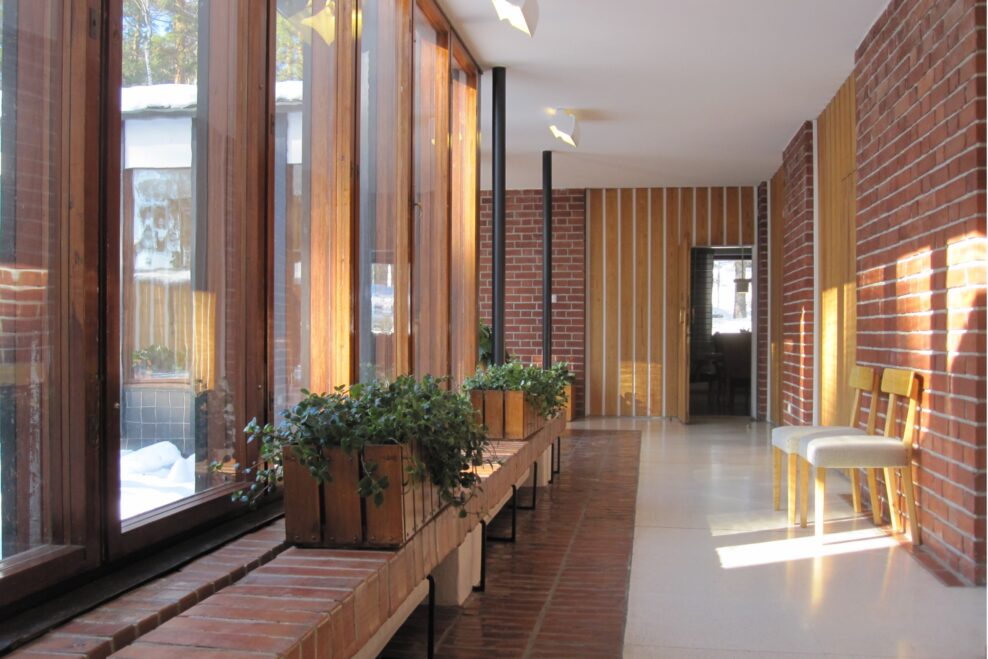The ISC20C Bureau is pleased to invite proposals for two presentation sessions that will take place during the 1-day seminar on 20th August in Helsinki.
- Session 1: Diversity of Conservation Approaches and Climate Change
- Session 2: Raising Awareness of Late Twentieth Century Heritage
The proposals should be in the form of an abstract of 1,000 characters or less (including spaces) and include 1–3 copyright free images. Please indicate which session you are submitting the abstract for (see session abstracts below for a more detailed description of each theme).
Abstracts should be submitted via email to both: nina.heikkonen@alvaraalto.fi and secretarygeneralisc20c@gmail.com by 23:59 CET on 30th April 2024.
Communication of acceptance of selected proposals will be given by 24h May 2024.
The presentation template will be sent together with the communication of acceptance. Due to time constraints, there will be a total of only four presentations in each session, with individual presentations restricted to twenty minutes in length. Please also note that for those who won’t be able to attend the AGM in person, there will be the opportunity to pre-record their presentations. The possibility of online presentations is also being explored by the onsite organizers in Finland and, if feasible, would be confirmed in due course.
If you need additional information at this time contact Secretary General Dr. Stefania Landi at: secretarygeneralisc20c@gmail.com.
We are looking forward to receiving your proposal!
Call for abstracts for Session 1: Diversity of Conservation Approaches and Climate Change
From the World Wars that ravaged cities across the globe, to the rapid growth of urban and industrialized landscapes, to the emergence of mass communication and transportation networks, the twentieth century was a time of unparalleled change that fundamentally altered the way we live, work, and interact with our environment. Yet, as we entered and moved through the first quarter of the twenty-first century, many of the heritage sites that spoke to these major social, political, and technological developments remained unrecognized or undervalued, leaving them vulnerable to inappropriate change or neglect.
In response to these significant threats, members of the International Scientific Committee on Twentieth Century Heritage set out to craft international principles to guide the conservation, management, and interpretation of the wide-ranging manifestations of twentieth century heritage. Building upon the legacy and tenets of the Venice Charter (1964), and various Charters that evolved from this seminal document, various members of the ISC20C and other ICOMOS International Scientific Committees discussed, debated, and revised the document until its third version, the Approaches to The Conservation of Twentieth‐Century Cultural Heritage, commonly known as the Madrid-New Delhi Document, was adopted by ICOMOS in its General Meeting in New Delhi in 2017 and subsequently translated into eighteen languages. Link https://isc20c.icomos.org/policy_items/madrid-new-dehli-doc/
As the international conservation field celebrates the sixtieth anniversary of the Venice Charter, the ISC20C would like to take the opportunity to revisit the Madrid-New Delhi Document to both reflect on its impact thus far, and to collectively consider how the document might be used to address the most pressing challenges facing twentieth century heritage today. This includes, but is not limited to, the intensifying impacts of climate change, the devastating consequences of new and ongoing conflicts around the globe, and the question of what role cultural heritage—and heritage practitioners—should play in movements for social justice. We are pleased to invite proposals for presentations that will contribute to this important discussion.
Call for abstracts for Session 2: Raising Awareness of the Late 20th Century Heritage
The latter half of the twentieth century brought in significant changes that radically altered concepts of town planning, architecture, the building industry more broadly and society writ large. These fundamental changes have resulted in built heritage whose values significantly expand well beyond more commonly identified aesthetic significance. Yet to be widely appreciated by the general public and even among professionals, it has been challenging to secure its place in inventories and to attract necessary protective measures, and there is still limited experience in conserving it.
The ISC20 collaborated with the Getty Conservation Institute to publish in 2019 the Twentieth-Century Historic Thematic Framework: A Tool for Assessing Heritage Places. It identifies and analyzes the principal social, technological, political, and economic drivers that have shaped the buildings, cities, industries, and landscapes of the twentieth century, emphasizing global forces, trends, and phenomena that have shaped the built environment. It thus it promotes consideration of a wide range of heritage places that represent these themes. See: https://openarchive.icomos.org/id/eprint/2432/1/twentieth_century_historic_thematic_framework.pdf
This session welcomes presentations that explore the unique conservation challenges affecting the rich and diverse places of late 20th century built environment. Case studies that share experiences of conserving late 20th century places as well as discussions on challenges for recognition and endangered sites may be included. Also, examples and experiences of using the HTF or critiques its use as a mechanism for identification and protection are also encouraged.


